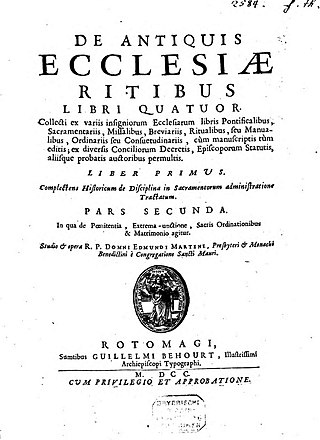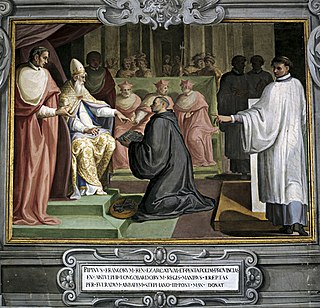This article relies largely or entirely on a single source .(December 2023) |
Nicolas Barat was a French Catholic scholar of Hebrew works, who died in 1706. [1]
This article relies largely or entirely on a single source .(December 2023) |
Nicolas Barat was a French Catholic scholar of Hebrew works, who died in 1706. [1]
Barat was born at Bourges during the first quarter of the seventeenth century; he began his studies at Sens, and continued them in Paris, where he was instructor in the Mazarin College. There he came under the influence of Richard Simon, the Orientalist and Biblical scholar. [1]
Barat died in 1706 at Paris. [1]
Most of Barat's published work was done in collaboration with other scholars. With Charles Bordes he edited the posthumous work of Louis Thomassin, Glossarium universale hebraicum (Paris, 1697), and aided Jean-Baptiste Duhamel in the publication of his Bible (Paris, 1706). At the time of his death he was engaged on a French translation of Schabtai's Rabbinical Library. His critical opinions, and much information that he had acquired, were published posthumously under the title, Nouvelle bibliothèque choisie (Amsterdam, 1714, 2 vols.) [1]

Adrianus Turnebus was a French classical scholar.

Alexis Paulin Paris was a French scholar and author.

Louis-Sébastien Le Nain de Tillemont was a French ecclesiastical historian.
Nicolas-Hugues Ménard was a French Benedictine scholar.

Philippe Labbe was a French Jesuit writer on historical, geographical and philological questions.

Edmond Martène was a French Benedictine historian and liturgist.
Maurus Dantine (1688–1746) was a Belgian Benedictine of the Congregation of Saint-Maur and chronologist.
Vincent Houdry was a French Jesuit preacher and writer on ascetics.

Dom Thierry Ruinart (1657–1709) was a French Benedictine monk and scholar. He was a Maurist, and a disciple of Jean Mabillon. Of his many works, the one now cited is his Acta sincera, a martyrology, written in Latin. His work is one of the main sources of Alphonsus Liguori's "Victories of the Martyrs". He was also interested in oenology. In 1729 his nephew Nicolas Ruinart founded the champagne house of Ruinart, which operates to this day (2007).

Vincent Contenson was a French Dominican theologian and preacher.
Bernardine a Piconio was a French Capuchin theologian and exegete.
Arthur-Marie Le Hir was a French Biblical scholar and Orientalist.
Guillaume-Hyacinthe Bougeant, known as le Père Bougeant was a French Jesuit and historian.

Jean Garnier was a French Jesuit church historian, patristic scholar, and moral theologian.

Jacques-Marie-Achille Ginoulhiac was a French bishop.

Léon Ménard was a French lawyer and historian.
Agostino Bernal was a Spanish Jesuit theologian.

From 756 to 857, the papacy shifted from the influence of the Byzantine Empire to that of the kings of the Franks. Pepin the Short, Charlemagne, and Louis the Pious had considerable influence in the selection and administration of popes. The "Donation of Pepin" (756) ratified a new period of papal rule in central Italy, which became known as the Papal States.
Edmond Richer was a French theologian known for several works advocating the Gallican theory, that the pope's power was limited by authority of bishops, and by temporal governments. He was born in Chaource.
The Children of Mary of the Sacred Heart is a Catholic sodality founded by Saint Madeleine Sophie Barat in Lyons, France in 1823. It has also been referred to as the "Association of the Children of Mary," the "Congregation of the Children of Mary," the "Children of Mary Sodality," and by their French name, Enfants de Marie, often abbreviated E. de M. Although groups run currently in the United States and Canada, this page refers primarily to the history before 1900.
![]() This article incorporates text from a publication now in the public domain : Herbermann, Charles, ed. (1913). "Nicolas Barat". Catholic Encyclopedia . New York: Robert Appleton Company.
This article incorporates text from a publication now in the public domain : Herbermann, Charles, ed. (1913). "Nicolas Barat". Catholic Encyclopedia . New York: Robert Appleton Company.